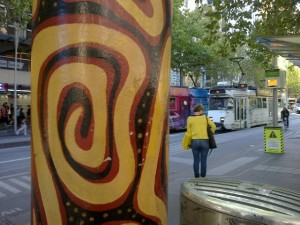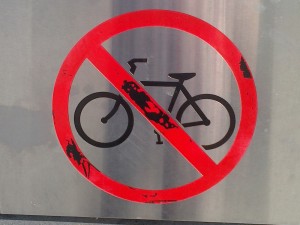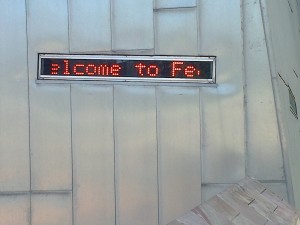Media is not a ‘thing’ out there
‘The media are not so much things as places which most of us inhabit, which weave in and out of our lives. Their constant messages and pleasures seem to flow around and through us, and they immerse most of our waking lives.’
Branston and Stafford, 2010, The Media Students Book
Yes, I often feel this on the train. People immersed in their media worlds, smiling to themselves as their read their tablets and listening to music or checking their phone. Nobody really wants to engage with is around them.
MEDIA TEXTS
Sites where meaning are generated through manipulation of materials and codes.
- Do not simply ‘picture’ or reflect a reality where meaning resides
Dorothy Smith (1990) argues ‘textually mediated communicative action, social relations as integral part of al our social environment’.
‘We get passports…entered by technology.’
PRE-MODERN SOCIETY
- Face to face interactions
- Direct experience as an authentic experience
MODERN SOCIETY
Predominately were interact through media texts – maps, books, papers – less authentic. We are moving away from this model of media. send – medium – message – receiver.
WILLIAM MERRIAN, 9/3/10
‘Studying me-dia: the problem of method in a post-broadcast age’ from his blog Media Studios 2.0 (see blog).
‘Post-broadcast…media ecology than ever before.’
Shibiya – social relations
PROJECT BREIF
We watched an excerpt ‘My Lobotomy’ Howard Dully Journey.
NOTICING
Media is everywhere.
‘Disciple of noticing’ Mason, J (2002) p 31.
‘As multisense beings, we are inundated with senses…’
We learn from noticing:
- Intentionally
- Consciously
- Disciplined forms
- Making and recording heightened forms of noticing.
- Your blog is diary of noticing.
Even when there’s nothing to supposedly listen to, we listen. For example in John Cage’s masterful experimental work4′ 33″ (1952) where nothing is played at all. But the audience, even though they were listening to nothing, hear everything else -ambient noise, people moving, coughing, traffic outside. It focused attention on ‘the other’.
We sat for some time in the lecture theatre repeating this experiment. We noticed:
- ambient sound become louder
- ‘Silence does not exist’
- Anxiety of audience – not prepped about the concept
- Silence of meditation
- screens, posters, business cards, graffiti, hand outs, buskers, traffic lights, phone – goggle maps, packaging.
- 3 lines of reflecting on process of noticing
TASK – FED SQUARE – NOTICING
Here we gathered at Federation Square and observed our surrounds. Traffic noise was the most obvious but as we walked around the square the video images of the Gran Prix took our attention. Then the running text on the Fed Square building advertising events and times before seeing the smaller things: signs to not cycle, no smoking signs, menus at restaurants.
REFECTION
Having made aware of noticing things, it of course affected my daily life and now I can’t escape listening to the smallest of sounds like my mother-in-law making these unusual popping squeaks when she’s cooking (no, she’s not on fire). I didn’t notice it before. Or the sound of the freeway near our house. I hadn’t really paid any attention to it before (is this a good thing?)







